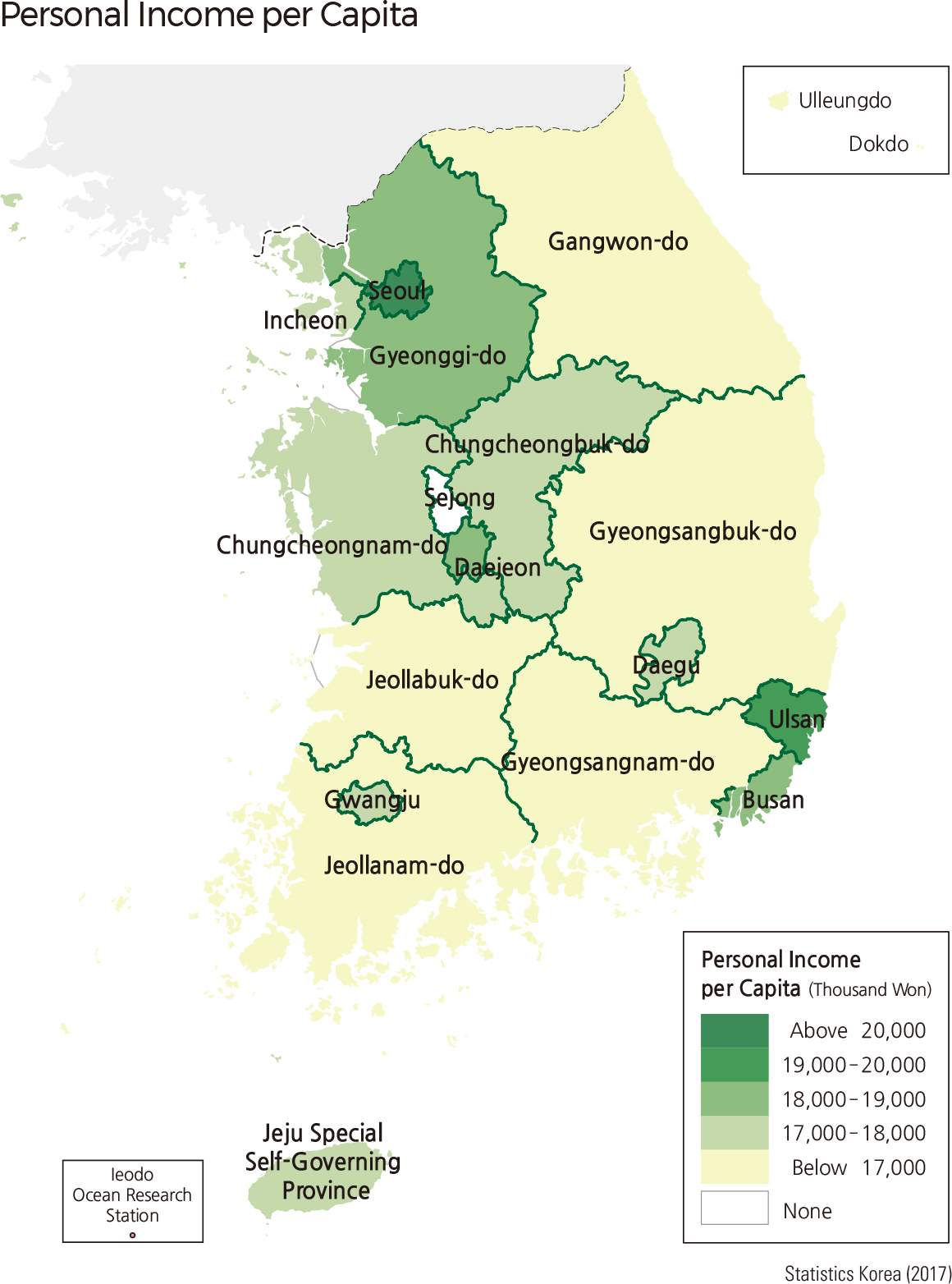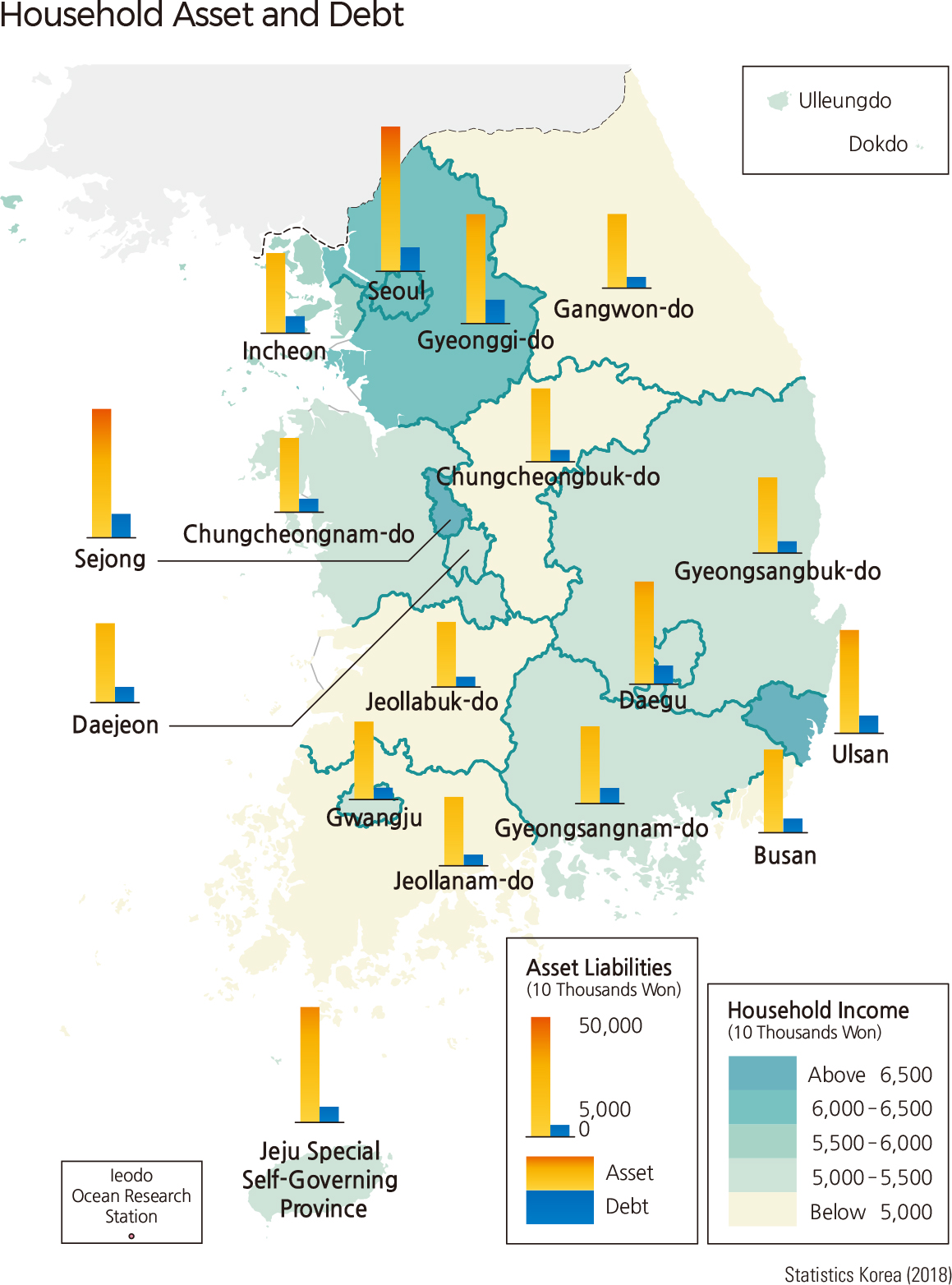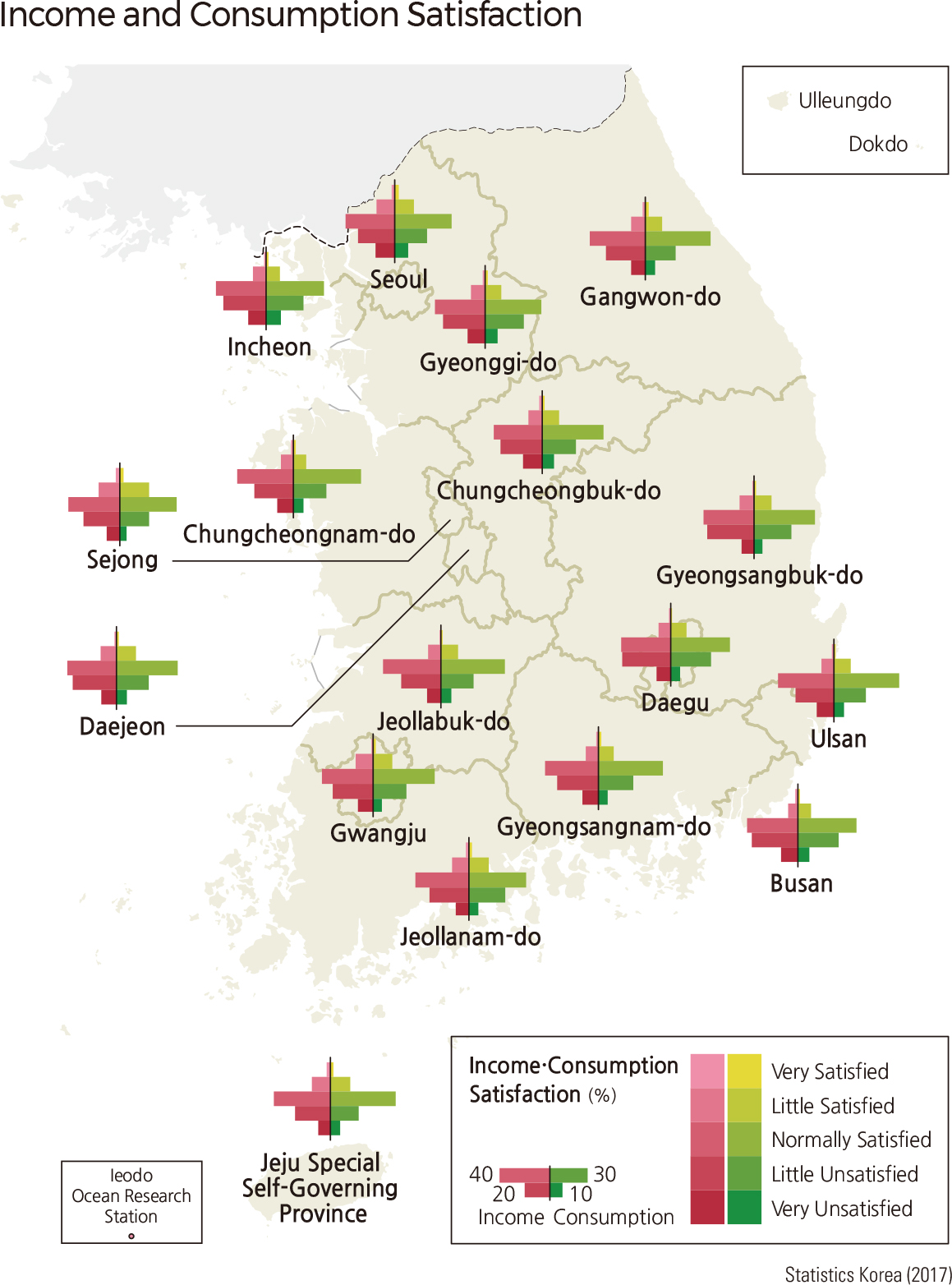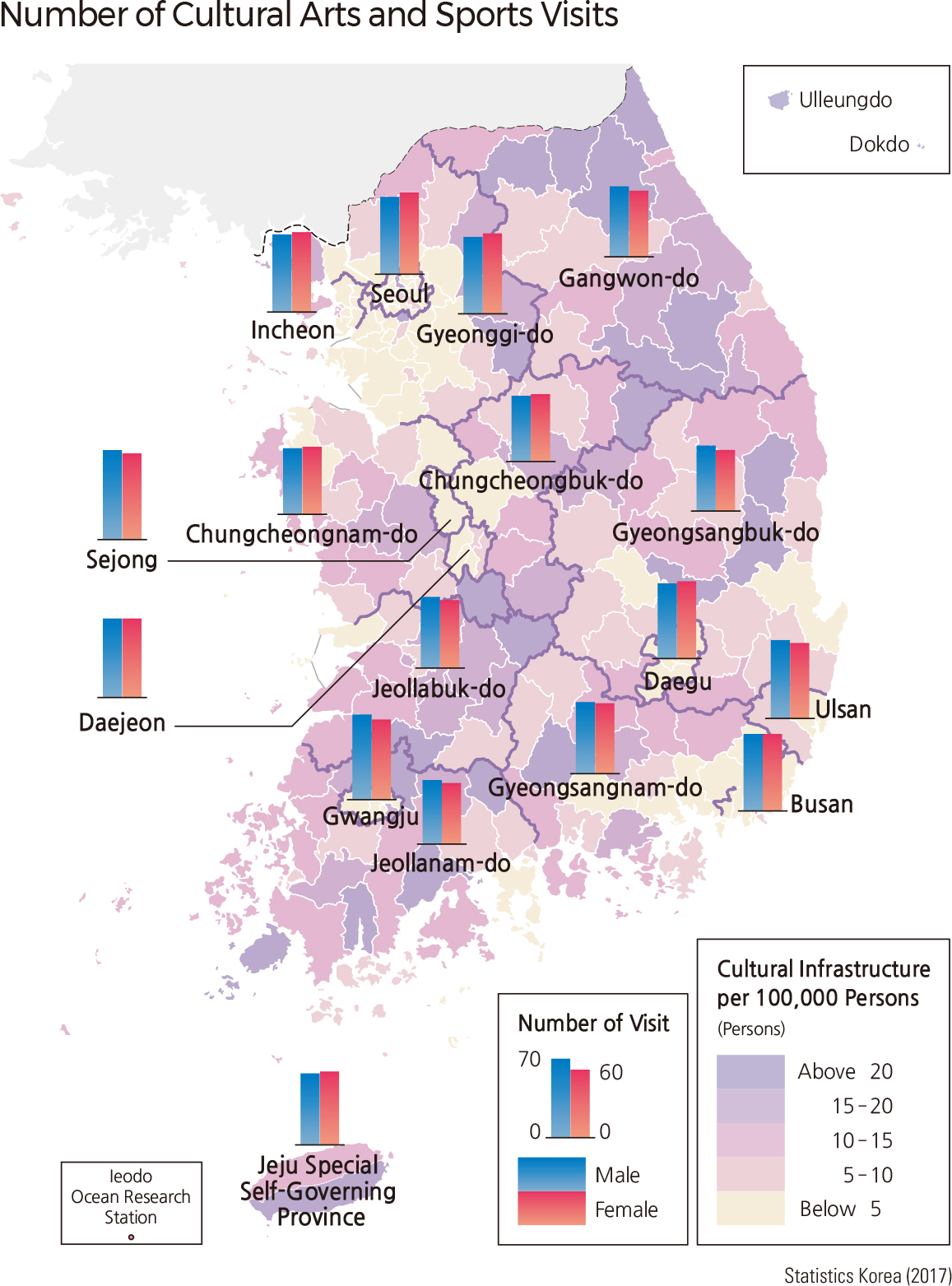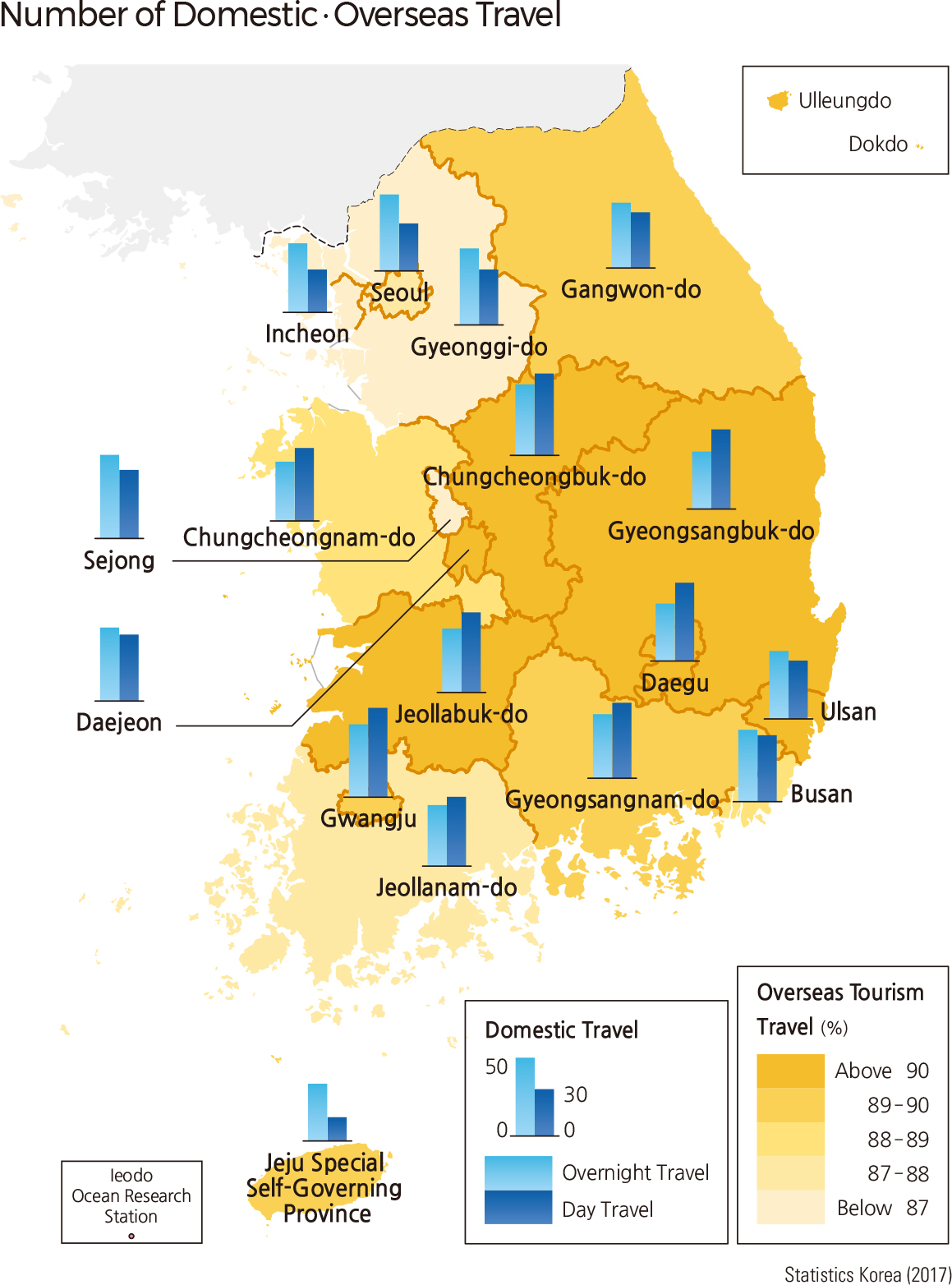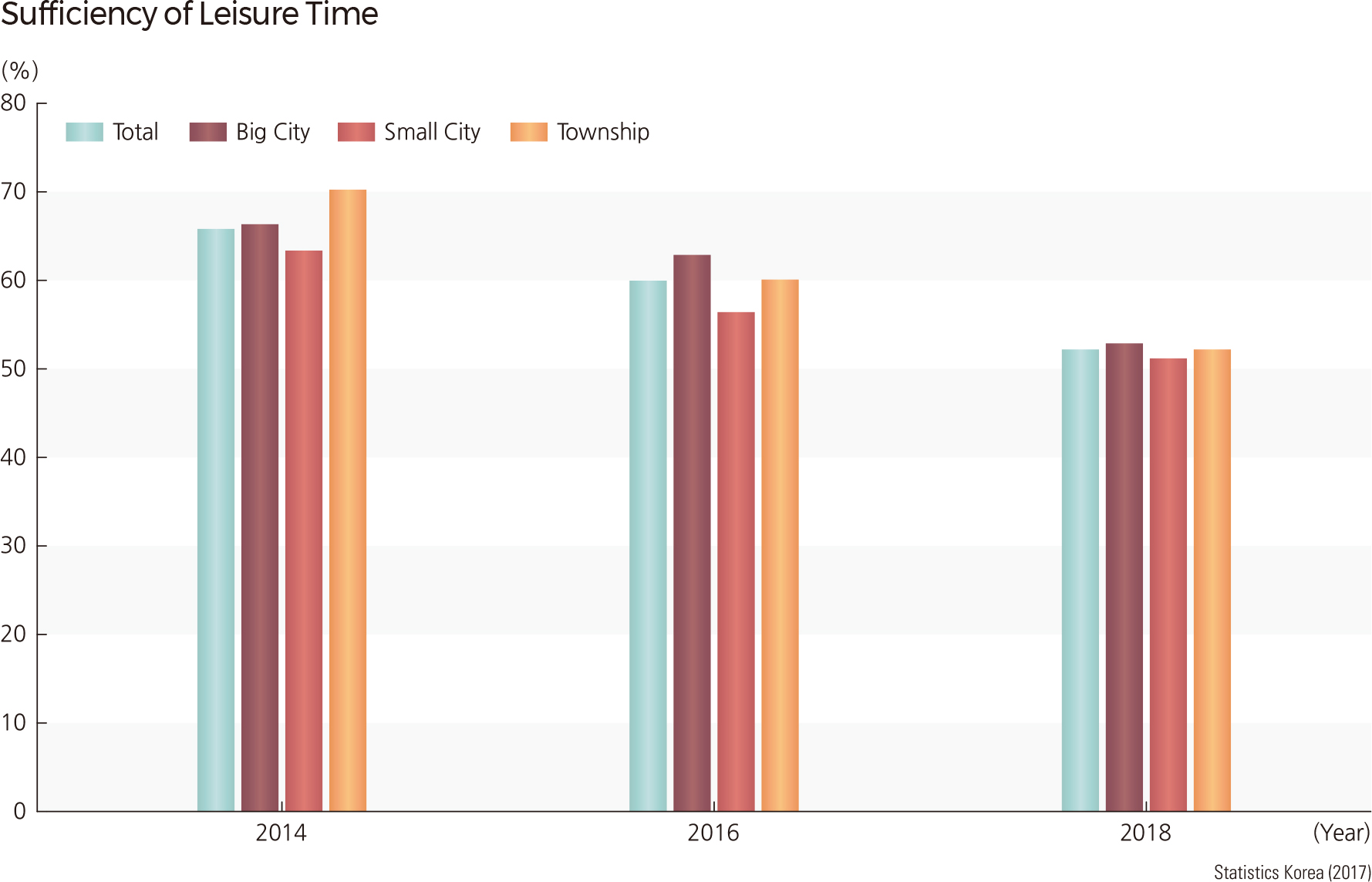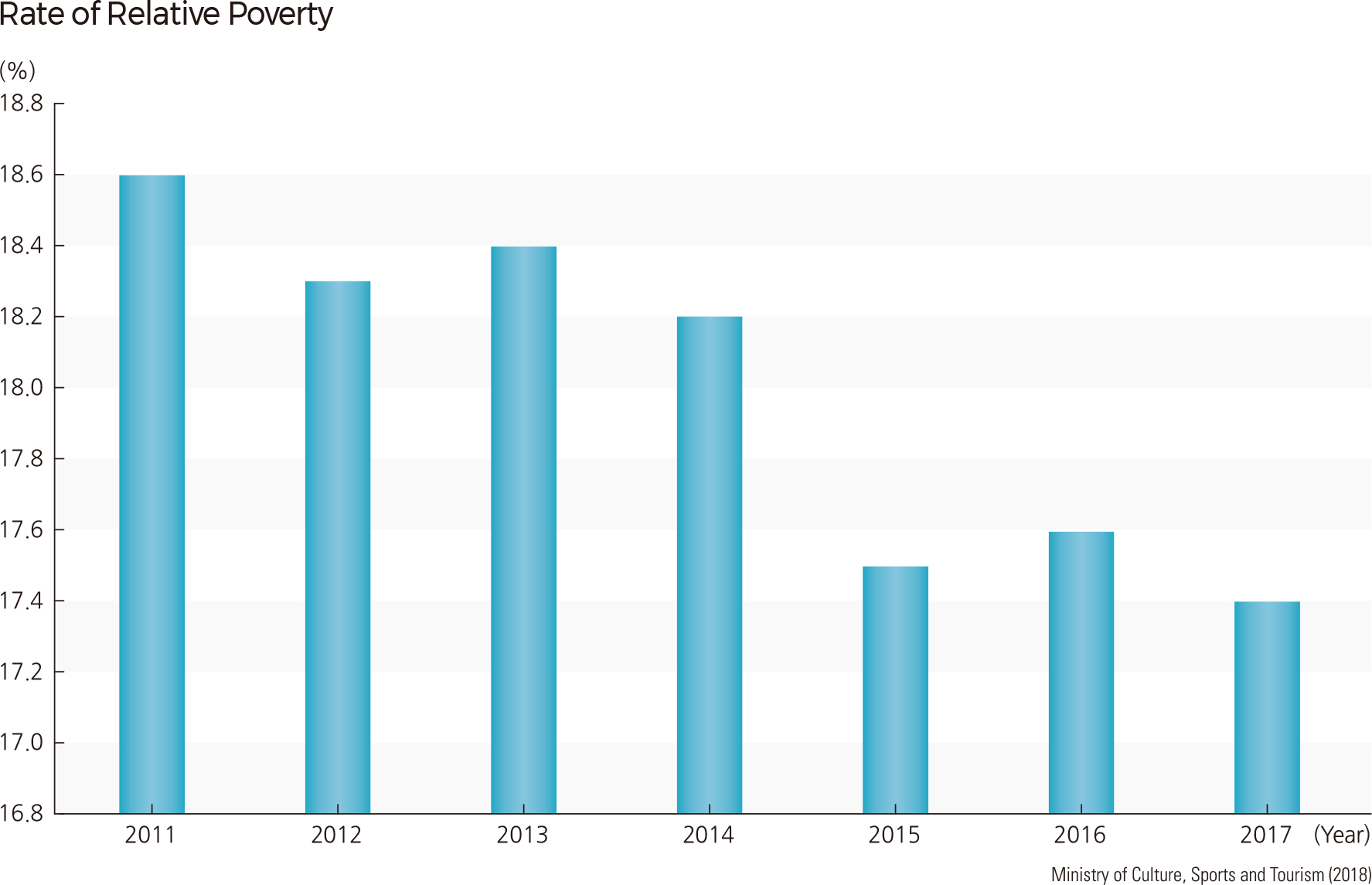English I 2019
Income and assets are key determinants of an individual’s quality of life. Income influences the quality of life through consumption activities, and income distribution determines the overall “quality of society.” On the other hand, in contrast to working hours, leisure time contributes to the physical and mental health of the individual through sports, culture, and arts, and provides the opportunity to socialize with others. These play a positive role in developing individual happiness and a sense of community. In particular, culture and arts contribute to enhancing the quality of life by enhancing the human spirit and forming the participant’s cultural identity.
With the exception of the household debt ratio out of seven indicators in the income, consumption, and asset categories in 2018, national per capita income, median household income, income satisfaction, consumer life satisfaction, household net assets, and relative poverty rates are improving. In terms of income satisfaction, Sejong, Seoul, and Jeollanam-do were the highest, while Daegu, Ulsan, and Busan were the lowest. In terms of consumer life satisfaction, Sejong, Seoul, and Jeollanam-do were the highest, while Busan, Chungcheongnam-do, and Daegu were the lowest. Among the six indicators in the leisure sector, except for the sufficiency of leisure time, cultural leisure expenditure rate, leisure time, the number of cultural arts and sports visits, the number of travel days per person, and leisure life satisfaction all improved. In addition, the satisfaction level of leisure activities is highest in Sejong, Seoul, and Daejeon, while Daegu, Jeollabuk-do, and Busan are the least satisfied.
|
